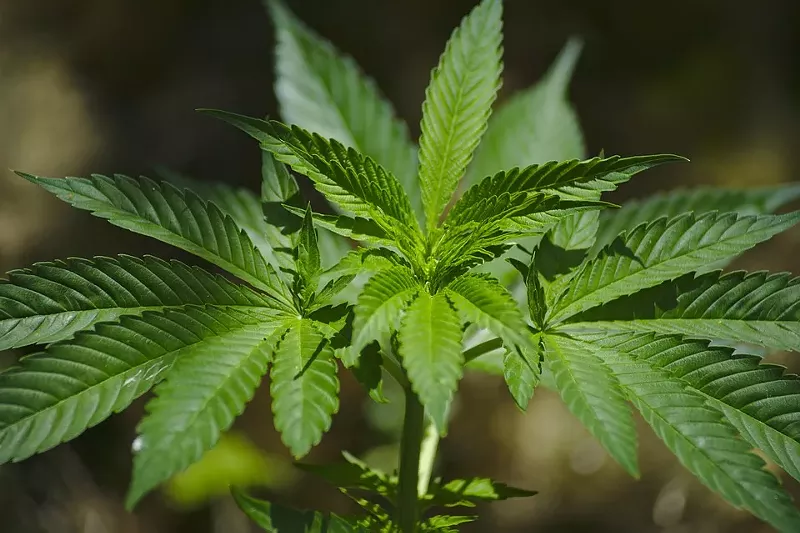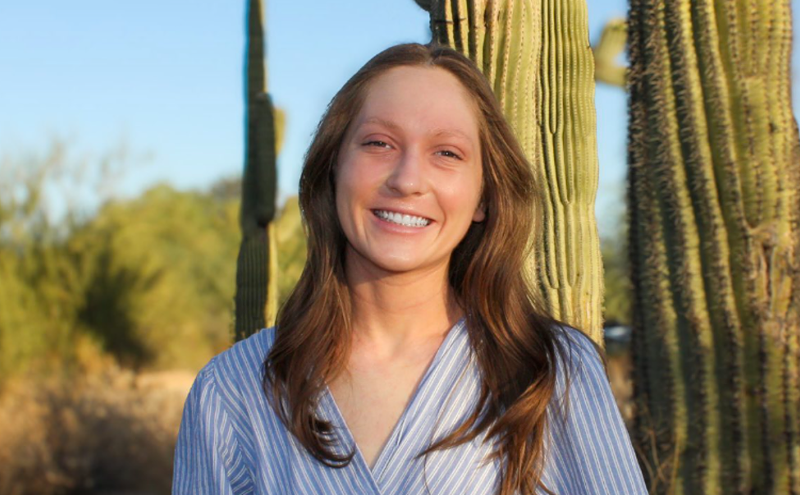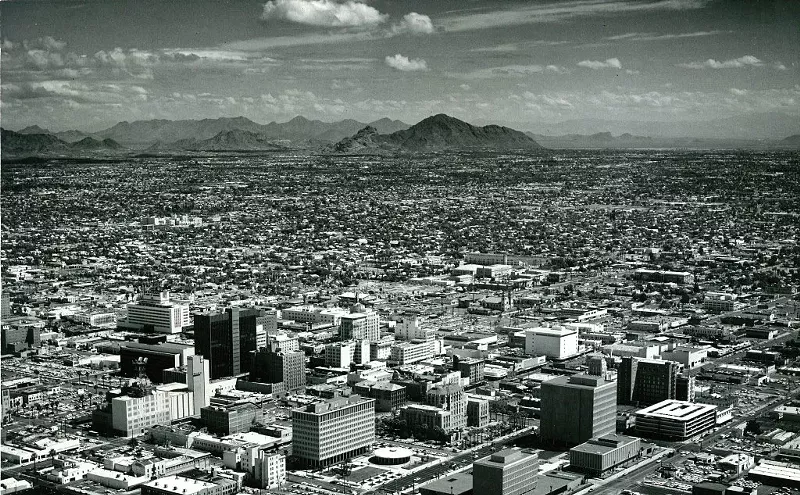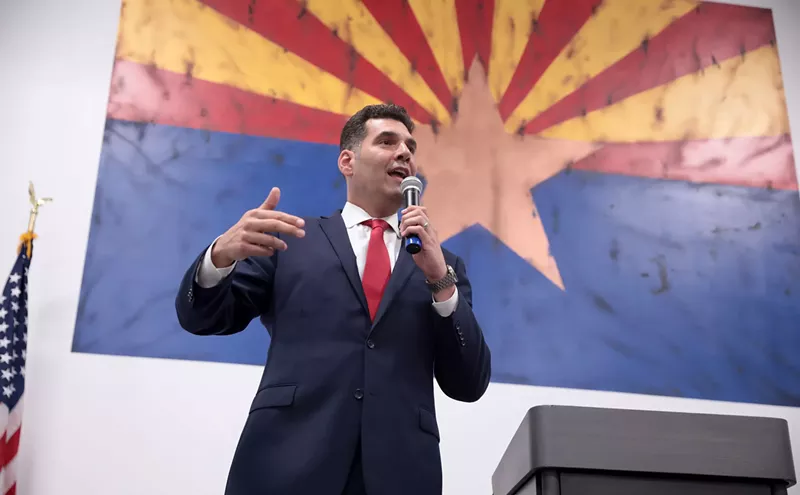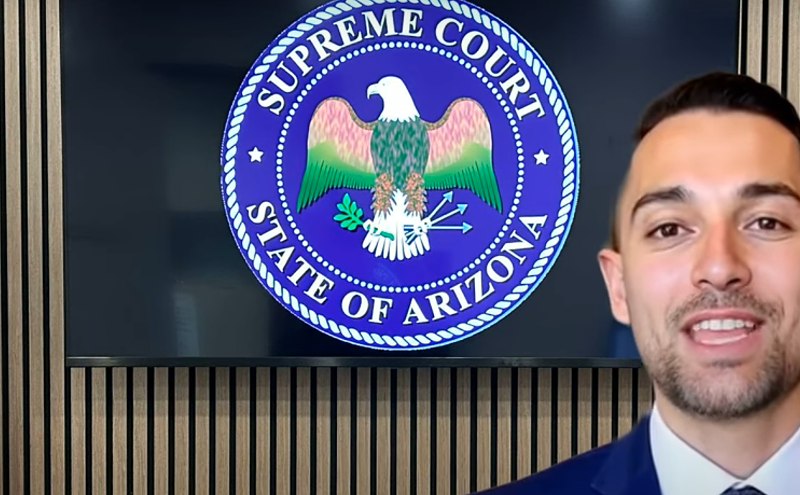Arizona Attorney General Mark Brnovich asked the state Supreme Court on Thursday to review an appeals-court ruling that struck down a ban on medical marijuana on college campuses.
In the 15-page petition for review, lawyers for the state claim that the Arizona Legislature had the right to alter the voter-enacted law with a new law signed by former Governor Jan Brewer in 2012.
They want provisions of the 2012 law re-established so that college students with medical-marijuana cards can face felony arrest and prosecution for possessing any amount of marijuana.
Local defense attorney Tom Dean said he sees the bid for a fresh appeal as another front in this year's attack by the GOP on Arizona's voter-initiative system.
Governor Doug Ducey signed bills passed by Republican lawmakers this spring that make it more difficult to launch initiatives, such as prohibiting campaigns from paying petition-gatherers for each signature they collect, and allowing petitions that aren't completed perfectly to be thrown out.
"Even more than marijuana, there's a frustration about not being able to amend voter initiatives," Dean said of Arizona's GOP lawmakers. "That's what I really think is driving [the new petition for review]."
Brnovich and other GOP leaders hope the state Supreme Court grants them the power to change initiatives, because they know they aren't likely to ever get that power from voters, Dean said.
State voters passed the Voter Protection Act overwhelmingly in 1998 after GOP lawmakers gutted a voter-approved law that established an early (though ultimately failed) medical-marijuana system and reformed state drug laws.
Lawmakers ever since have chafed at the VPA's provisions, which prohibit them from changing voter-approved legislation without a three-quarters majority, and unless the change "furthers the purposes" of the law.
The VPA figures prominently in the fight over the state's 2012 ban of medical marijuana on college and university campuses.
Lawmakers achieved a three-quarters majority for the ban with the support of several Democrats. Critics said at the time the law probably wouldn't pass muster. But it took the 2014 bust of Arizona State University student Andre Maestas to start the legal challenge.
As the state AG's petition for review recounts, Maestas had been watching Game of Thrones on the night of March 18, 2014, when he stepped out of his Tempe dormitory to get "small cheese puff things" for a snack.
Before he made it to the vending machine, he decided to sit down in the intersection of Lemon Street and Forest Avenue and collect his thoughts. Campus police found him "dazed" and unable to relate where he lived, saying it was "kind of over there."
Maestas admitted he had pot in his dorm room after cops searched his wallet and found his medical-marijuana card. Following the find of a whopping .3 grams, Maestas was charged with felony possession because the cannabis was on university property.
Although medical-marijuana patients usually can't be prosecuted for possessing up to 2.5 ounces, courts have ruled that when patients break the rules, typical felony-possession laws apply.
The Maricopa County Attorney's Office knocked the charge back to a misdemeanor, and Maestas was later found guilty of possession and obstruction of a public thoroughfare.
However, in April the state Court of Appeals tossed his marijuana conviction, ruling that the 2012 campus ban was illegitimate because it didn't further the purpose of the law as the VPA required.
The three-judge panel ruled unanimously that the Legislature could still pass a law banning medical marijuana from the campuses — they just can't make failure to comply with the ban a crime.
The state's new petition argues that by failing to ban marijuana from universities and college campuses, the schools risk the elimination of their federal funding. Federal law stipulates that in order to receives federal funding, colleges and universities must ban illegal drugs from their campuses.
In passing the state's medical-pot law, "voters anticipated the possibility of restrictions on and penalties for cardholders in order to protect federal funds." The 2012 campus ban accomplishes this, the petition for review states.
The state's lawyers noted that the Arizona Medical Marijuana Act (AMMA) restricts cardholders in other ways — such as banning medical pot from elementary and high schools — so why would a ban on college campuses not further the act's purposes?
Dean said the state's new argument is no better than the old one thrown out by the Court of Appeals in April. As the court ruled then, Dean pointed out, a ban is fine as long as it's not a criminal ban. Criminalizing possession for patients on university campuses, when the AMMA called for no such thing, doesn't further one of the AMMA's main purposes, which is to prevent the prosecution of state-authorized patients.
Not a single U.S. university has ever had its federal funding pulled because its state decriminalized marijuana, Dean said.
"Huge gaps" exist in the reasoning of the state lawyers, Dean asserted.
"I'm confident the [Arizona] Supreme Court will be able to see through that," he said.
Brnovich has proceeded with a cautious stance on the state's medical-marijuana law since he was elected in 2014, and has not always marched lock-step with top Arizona prohibitionists like Maricopa County Attorney Bill Montgomery.
In February, Brnovich chose not to join Montgomery in a lawsuit against a Sun City dispensary that Montgomery once said he believed could overturn the state's medical-marijuana law.
On Thursday, his office released the following statement to the Phoenix New Times about the case: "The 2010 voter-approved law prohibits the possession of medical marijuana on public school grounds. We believe the legislature acted within their authority to further the purpose of the initiative by preventing possession of medical marijuana on publicly funded college campuses."
Click below to read the state's entire petition for review:

Audio By Carbonatix
[
{
"name": "GPT - Billboard - Slot Inline - Content - Labeled - No Desktop",
"component": "21251496",
"insertPoint": "2",
"requiredCountToDisplay": "2"
},{
"name": "STN Player - Float - Mobile Only ",
"component": "21327862",
"insertPoint": "2",
"requiredCountToDisplay": "2"
},{
"name": "Editor Picks",
"component": "16759093",
"insertPoint": "4",
"requiredCountToDisplay": "1"
},{
"name": "Inline Links",
"component": "17980324",
"insertPoint": "8th",
"startingPoint": 8,
"requiredCountToDisplay": "7",
"maxInsertions": 25
},{
"name": "GPT - 2x Rectangles Desktop, Tower on Mobile - Labeled",
"component": "21934225",
"insertPoint": "8th",
"startingPoint": 8,
"requiredCountToDisplay": "7",
"maxInsertions": 25
},{
"name": "Inline Links",
"component": "17980324",
"insertPoint": "8th",
"startingPoint": 12,
"requiredCountToDisplay": "11",
"maxInsertions": 25
},{
"name": "GPT - Leaderboard to Tower - Slot Auto-select - Labeled",
"component": "17012245",
"insertPoint": "8th",
"startingPoint": 12,
"requiredCountToDisplay": "11",
"maxInsertions": 25
}
]

